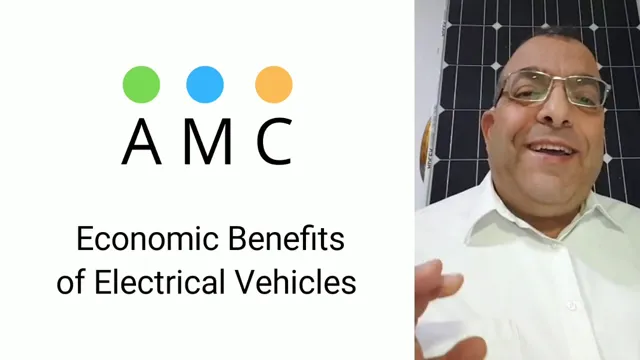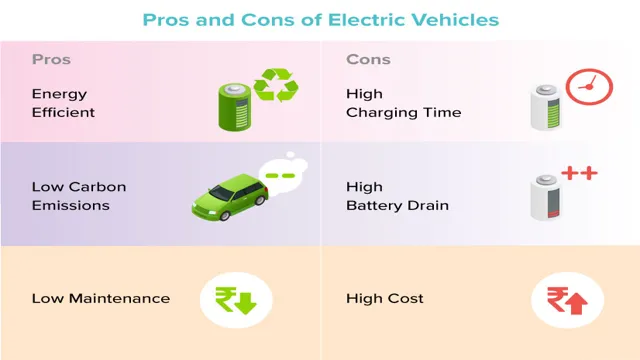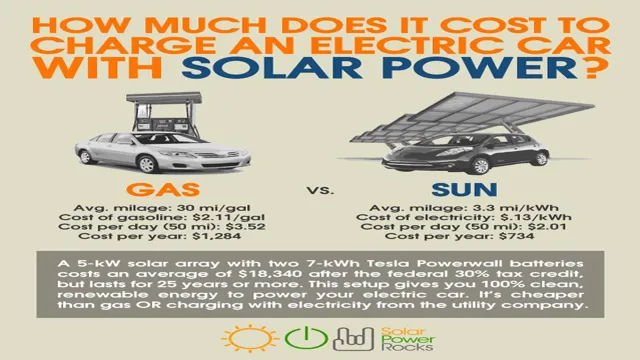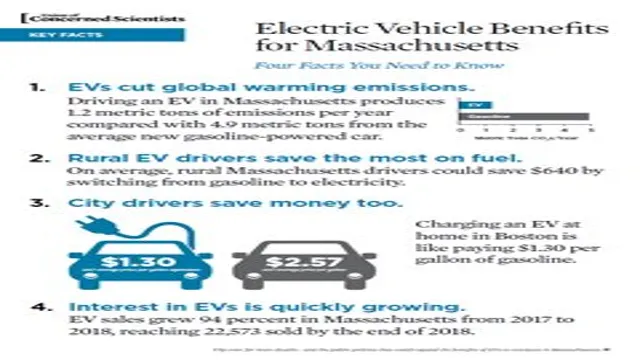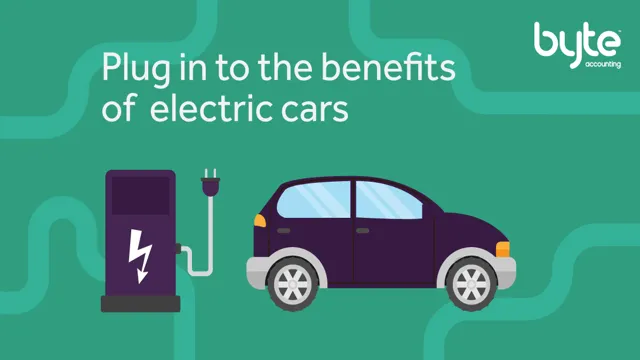Eco-friendly and Cost-effective: Unveiling the Economic Benefits of Electric Cars
Electric cars have been on the rise for the past few years, and for a good reason. With the world becoming more environmentally conscious and the push for sustainable energy sources, electric cars have become a hot topic of discussion. But, beyond just being eco-friendly, there is a strong economic case to be made for electric cars as well.
With the cost of electric cars decreasing and the price of gasoline continuing to rise, consumers are left wondering if making the switch to electric is not only good for the planet but for their wallet too. So, what is the economic case for electric cars, and can it convince you to make the switch?
Lower Operating Costs
One of the most enticing economic benefits of electric cars is their lower operating costs. Unlike traditional gasoline-powered vehicles, electric cars require much less maintenance and fewer repairs over their lifetime. They have fewer moving parts, which means fewer things that can break or wear down.
You also don’t need to do things like oil changes or replace air filters, which can save you hundreds or even thousands of dollars over the life of your car. Additionally, electric cars are much more efficient and cost-effective when it comes to fueling. While gas prices can be unpredictable and subject to global events and conflicts, electric rates are typically more stable and less affected by outside factors.
And, since electric cars run on batteries, which can be charged at home or at public charging stations, you’ll save money by not having to constantly fill up at the gas pump. Overall, the lower operating costs of electric cars make them an excellent long-term investment for drivers who want to save money and reduce their environmental impact.
Fuel Savings
When it comes to operating costs, fuel expenses can be a significant factor for any business or individual relying on transportation. That’s why fuel savings are so important in keeping costs low, and ultimately, cutting expenses. Lower operating costs can be achieved by investing in more fuel-efficient vehicles and taking steps to reduce fuel consumption.
This can include simple actions such as maintaining proper tire pressure, reducing idle time, and utilizing fuel additives. By putting in the effort to conserve fuel, you can significantly reduce your expenses, which ultimately benefits your bottom line. So, if you’re looking for ways to save money on operating costs, focusing on fuel savings is a great place to start.
Not only will it save you money, but it’s also a great way to reduce your carbon footprint and contribute to a sustainable future.

Maintenance Savings
Maintenance savings are a crucial aspect of any business, as it enables companies to lower their operating costs and increase their profitability. By implementing regular maintenance practices, businesses can prevent major breakdowns, reduce downtime, and extend the lifespan of their equipment. This, in turn, translates to lower repair and replacement costs, as well as lower energy consumption.
Additionally, proper maintenance ensures that equipment operates at peak efficiency levels, resulting in fewer errors and increased productivity. For instance, imagine how a simple oil change can save your vehicle from needing expensive repairs later down the road. Similarly, performing regular maintenance on various equipment within your business can prevent costly problems and save you a significant amount of money in the long run.
By prioritizing maintenance, businesses can reap significant cost savings and improve overall operational efficiency.
Government Incentives
Electric cars have become increasingly popular in recent years, not only as a means of transportation but as an investment in the environment and future economies. Many countries have adopted policies to promote the use of electric cars, with government incentives offering economic benefits to individuals and businesses alike. These incentives include tax credits and rebates for purchasing electric cars, as well as financial support for infrastructure development, such as charging stations.
The economic benefits of electric vehicles stretch beyond just personal savings and convenience. They contribute to a reduction in greenhouse gas emissions and provide opportunities for growth in the renewable energy sector. With the increasing demand and support for electric cars, businesses investing in electric vehicle technology can expect to benefit from a surge in demand for their products and services while contributing to a sustainable future.
Tax Credits
Tax Credits If you’re a small business owner, you might be eligible for some government incentives to help you save on taxes. One of these incentives is tax credits. Tax credits are a great way to save on your tax bill, as they directly reduce the amount of tax you owe.
There are several tax credits available, including the Small Business Health Care Tax Credit, the Work Opportunity Tax Credit, the Research and Development Tax Credit, and the Business Energy Investment Tax Credit. Each of these tax credits has its own eligibility requirements and rules, so it’s important to do your research and make sure you qualify before claiming them. But if you do qualify, taking advantage of these tax credits can help you save money and grow your business.
Rebates and Discounts
If you’re thinking about investing in energy-efficient upgrades for your home or business, you may be eligible for government incentives that can significantly reduce the cost of your project. Rebates and discounts are available for a range of products and services, including solar panels, energy-efficient appliances, and insulation. For example, the federal government offers a tax credit of up to 26% of the cost of installing solar panels on your home or business.
Some states and municipalities also offer additional incentives, such as rebates for purchasing electric vehicles or energy-efficient home upgrades. These incentives can save you a substantial amount of money and make it easier to justify the cost of going green. Plus, investing in energy efficiency can lower your monthly energy bills, so you can start enjoying the benefits right away.
Don’t miss out on these opportunities to save money and reduce your environmental impact – check with your local government or a qualified contractor to see what incentives you may be eligible for.
Resale Value
When electric cars first hit the market, many people were hesitant to invest due to high costs and concerns over resale value. However, as the popularity of electric vehicles continues to grow, resale value is no longer a major concern. In fact, electric cars often hold their value better than traditional gas vehicles.
This is due to several factors, including lower maintenance costs, longer battery warranties, and the overall durability of electric cars. Plus, as more people switch to electric vehicles, the demand for used electric cars continues to rise, which in turn drives up their resale value. In addition to being environmentally friendly, electric cars also provide an economic benefit through their strong resale value.
So, if you’re considering purchasing an electric vehicle, rest assured that your investment will retain its value over time.
Electric Cars Hold Their Value Better
One of the unique benefits of electric cars is the fact that they tend to hold their value much better than traditional gasoline-powered vehicles. This is due to a variety of reasons, including the fact that electric cars are still a relatively new technology, which means that they have not been widely adopted yet. Additionally, electric cars tend to have lower maintenance costs compared to traditional cars, which means that they are often more reliable and have fewer issues over time.
Finally, many people are attracted to the environmentally-friendly nature of electric cars, which can help to drive up their resale value. Overall, if you are in the market for a new car and are looking for a vehicle that will hold its value well over time, it may be worth considering an electric car as your next purchase.
Future Marketability
Resale Value When buying a new car, many people consider its resale value. After all, who doesn’t want to get back a good amount of money when they decide to sell their car? In terms of future marketability, a car with good resale value is always a wise investment. You can easily get rid of the car whenever you decide to upgrade and get a good return on investment.
However, cars with low resale value can be a burden as they tend to depreciate much faster than the ones with high resale value. Cars that are popular among consumers and well-maintained usually have a high resale value. Therefore, it’s important to choose a car that has a good resale value if you’re planning to sell it in the future.
Always think about the long term and choose a car that will not only serve your needs but also hold its value. In conclusion, to get the most out of your investment in a car, make sure to consider its resale value.
Energy Independence
Electric cars are becoming more popular as a tool for energy independence. Not only do they provide a more eco-friendly way to drive around, but they also come with significant economic benefits. By switching to an electric car, individuals can save money on gas and maintenance costs, reducing the amount of cash they’re sending out to big oil companies.
And, by using electricity to power their vehicles, drivers can rely on renewable energy sources like wind and solar power. This shift towards sustainable energy sources can ultimately save people money and have a positive impact on the environment. Overall, investing in electric cars can help promote energy independence and save people money in the process.
Reduced Reliance on Fossil Fuels
Energy independence has become a significant concern for many countries worldwide, as they seek to reduce their reliance on fossil fuels. This move towards sustainable energy has become more urgent in recent years as concerns over climate change and carbon emissions continue to grow. By investing in renewable energy sources such as wind, solar, and hydropower, countries can reduce their dependence on finite resources extracted from the earth.
Such a shift not only promotes environmental sustainability, but it also secures a country’s energy future by reducing its reliance on imported fossil fuels. This is crucial as the volatility of the global oil market can affect a country’s economy, energy security, and national security. Embracing renewable energy sources will not only help to protect the planet, but it will also promote economic growth and enhance national energy security.
Conclusion
In conclusion, the economic benefits of electric cars are electrifying! Not only do they offer lower operating costs and fewer maintenance expenses, but they also contribute to a cleaner environment and increased energy independence. As more and more manufacturers invest in electric vehicle technology, we can expect to see a surge in job opportunities and a boost in economic growth. So, hop on the electric bandwagon – your wallet and the planet will thank you!”
FAQs
What are the economic benefits of using an electric car?
Electric cars are more cost-effective in the long run as they require lesser maintenance and have lower operating costs due to the cheaper cost of electricity in comparison to gasoline.
How much money can I save using an electric car?
The amount of money you can save using an electric car depends on your usage and electricity rates in your area. However, on average, electric cars save their owners around $1,000 – $1,500 per year on fuel and maintenance costs.
Are there any tax incentives available for buying an electric car?
Yes, there are several tax incentives and rebates available for electric car buyers, depending on the state and federal regulations. In some states, incentives can be as much as $5,000, and the federal government provides a tax credit of up to $7,500 for qualified electric car purchases.
How do electric cars benefit the economy?
Aside from electric cars being a potential growth area for the auto industry, it also reduces the dependence on foreign oil. Electric cars can help to lessen oil imports and improve the balance of payments, thereby improving the economy’s resilience to oil price shocks. Additionally, electric cars also create new opportunities for businesses focused on charging infrastructure, energy generation, and sustainable transportation.

